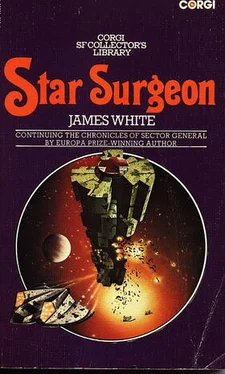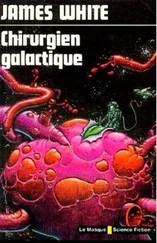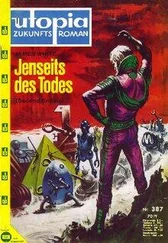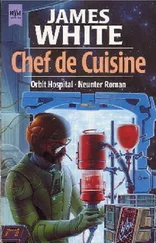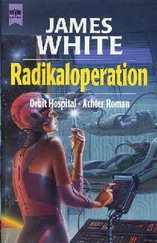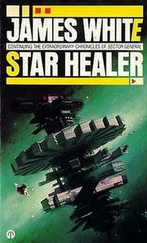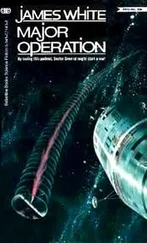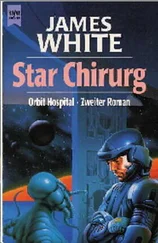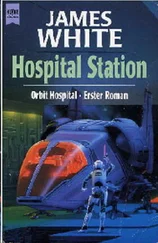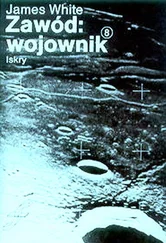Stillman said, “I am, and it is. If it works.”
On the day before they were due to arrive the Captain asked if Conway would like to come to Control for a few minutes. They were computing their position in preparation for making the final jump and the ship had emerged relatively close to a binary system, one star of which was a short-term variable.
Awed, Conway thought it was the sort of spectacle which makes people feel small and alone, makes them feel the urge to huddle together and the need to talk so that they might re-establish their puny identities amid all the magnificence. Conversational barriers were down and all at once Captain Williamson was speaking in tones which suggested three things to the listening Conway-that the Captain might be human after all, that he had hair and that he was about to let it down a little;
“Er, Doctor Conway,” he began apologetically, “I don’t want to sound as if I’m criticizing Lonvellin. Especially as it was a patient of yours and may also have been a friend. Neither do I want you to think that I’m annoyed because it has a Federation cruiser and various lesser units running errands for it. That isn’t so …
Williamson took off his cap and smoothed a wrinkle from the headband with his thumb. Conway had a glimpse of thinning gray hair and a forehead whose deep worry lines had been concealed by the cap’s visor. The cap was replaced and he became the calm, efficient senior officer again.
To put it bluntly, Doctor,” he went on, “Lonvellin is what I would call a gifted amateur. Such people always seem to stir up trouble for us professionals, upsetting schedules and so on. But this doesn’t bother me either, because the situation Lonvellin uncovered here most definitely needs something done about it. The point I’m trying to make is that, as well as our survey, colonization and enforcement duties, we have experience at sorting out just such sociological tangles as this one, although at the same time I admit that there is no individual within the Corps with anything like Lonvellin’s ability. Nor can we suggest any plan at the moment better than the one put forward by Lonvellin …
Conway began to wonder if the Captain was getting at something or merely blowing off steam. Williamson had not struck him as being the complaining type.
… As the person with most responsibility next to Lonvellin on this project,” the Captain finished with a rush, “it is only fair that you know what we think as well as what we are doing. There are nearly twice as many of our people working on Etla than Lonvellin knows about, and more are on the way. Personally I have the greatest respect for our long-lived friend, but I can’t help feeling that the situation here is more complex than even Lonvellin realizes.”
Conway was silent for a moment, then he said, “I’ve wondered why a ship like Vespasian was being used on what is basically a cultural study project. Do you think that the situation is more, ah, dangerous as well?”
“Yes,” said the Captain.
At that moment the tremendous double-star system pictured in the view-screen dissolved and was replaced by that of a normal C-type sun and, within a distance of ten million miles, the tiny sickle shape of the planet which was their destination. Before Conway could put any of the questions he was suddenly itching to ask, the Captain informed him that they had completed their final jump, that from now until touchdown he would be a very busy man, and ended by politely throwing him out of the control room with the advice that he should catch as much sleep as possible before landing.
Back in his cabin Conway undressed thoughtfully and, a part of his mind was pleased to note, almost automatically. Both Stillman and he had been wearing Etlan costume-blouse, kilt and a waist-sash with pockets, a beret and a dramatic calf-length cloak being added for outdoor use-continually for the past few days, so that now he felt comfortable in it even while dining with Vespasian’s officers. At the moment, however, his discomfort was caused solely by the Captain’s concluding remarks to him in the control room.
Williamson thought that the Etlan situation was dangerous enough to warrant using the largest type of law enforcement vessel possessed by the Monitor Corps. Why? Where was the danger?
Certainly there was nothing resembling a military threat on Etla. The very worst that the Etlans could do they had done to Lonvellin’s ship and that had hurt the being’s feelings and nothing else. Which meant that the danger had to come from somewhere outside.
Suddenly Conway thought he knew what was worrying the Captain. The Empire …
Several of the reports had contained references to the Empire. It was the great unknown quantity so far. The Monitor Corps survey vessels had not made contact with it, which wasn’t surprising because this sector of the galaxy was not scheduled for mapping for another fifty years, and would not have been entered if Lonvellin’s project had not come unstuck. All that was known about the Empire was that Etla was part of it and that it sent medical aid at regular if lengthy intervals.
To Conway’s mind the quality of that aid and the intervals between its arrival told an awful lot about the people responsible for sending it. They could not be medically advanced, he reasoned, or the drugs they sent would have checked, if only temporarily, some of the epidemics which had been sweeping Etla at the time. And they were almost certainly poor or the ships would have come at shorter intervals. Conway would not be surprised if the mysterious Empire turned out to be a mother world and a few struggling colonies like Etla. But most important of all, an Empire which regularly sent aid to its distressed colony, whether it was large, medium or small as Empires went, did not seem to Conway to be a particularly evil or dangerous entiw To the contrary, on the evidence available he rather approved of this Empire.
Captain Williamson, he thought as he rolled into bed, was inclined to worry too much.
Vespasian landed. On the main screen in the Communications room Conway saw a cracked white expanse of concrete which stretched to the half-mile distant periphery, where the fine details of vegetation and architecture which would have made the scene alien were lost in the heat haze. Dust and dried leaves littered the concrete and small heaps of cloud were scattered untidily about a very Earth-like sky. The only other ship on the field was a Monitor courier vessel which was grounded close to the block of disused offices that had been loaned by the Etlan authorities for use as the visitor’s surface base.
Behind Conway the Captain said, “You understand, Doctor, that Lonvellin is unable to leave its ship, and that any physical contact between us at this stage would wreck our present good relations with the natives. But this is a big screen. Excuse me …
There was a click and Conway was looking into the control room of Lonvellin’s ship, with a life-size image of Lonvellin itself sprawling across most of the picture.
“Greetings, friend Conway,” the EPLH’s voice boomed from the speaker. “It is a great pleasure to see you again.”
“A pleasure to be here, sir,” Conway replied, “I trust you are in good health …
The enquiry was not merely a polite formality. Conway wanted to know if there had been anymore “misunderstandings” on the cellular level between Lonvellin and its personal physician, the intelligent, organized virus-colony which dwelt within its patient-host’s body. Lonvellin’s doctor had caused quite a stir at Sector General, where they were still arguing as to whether it should be classified as a doctor or a disease …
“My health is excellent, Doctor,” Lonvellin replied, then straightaway got down to the business in hand. Conway hastily returned his mind to present time and concentrated on what the EPLH was saying.
Читать дальше
